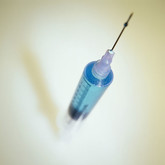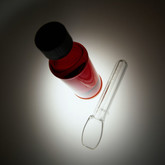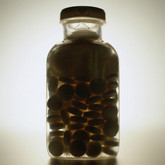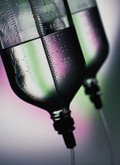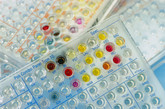Biosimilars
EMA plans to revise biosimilar guidelines
EMA announced on 3 October 2011 that it has published a concept paper asking for comments on topics to be included in a potential revision of the agency’s 2006 biosimilar guideline, which covers non-clinical and clinical development of biosimilars. The paper will be released for a 3-month consultation period.
Biosimilar user fee levels and performance goals for the FDA
FDA and representatives from the drug industry negotiating a user fee for biosimilars have tentatively set performance goals and biosimilar user fee levels, creating a separate review programme for biosimilars.
How profitable will biosimilars be
The profitability of biosimilars remains an open question. Five years after launch it is thought that most biosimilars markets will look similar to generics markets (70% penetration, 25% of brand-name drug price) but also that a ‘brand-like’ market with lower price attrition and market share is possible [1].
FDA new drug approvals up in 2011: 900 biotech drugs in development
FDA had already approved 26 new drugs by the end of August 2011 compared to only 21 approved in 2010. Of note were six cancer drugs and two ground-breaking drugs for hepatitis C. The current year looks likely set a record for recent years for new drug approvals, which may total 35–40 by the end of 2011. After a slow start in the first two months with three new drug approvals and nine rejections in January and February 2011, FDA approved four new drugs, two of which were monoclonal antibodies, in March and five in April. Of the 11 new drugs approved in the first four months, only three biologicals were approved.
US$54 billion worth of biosimilar patents expiring before 2020
By 2020 biological products with sales of around US$23 billion in the EU and US$29 billion in the US are expected to be exposed to biosimilar competition [1].
Boehringer Ingelheim joins other Big Pharma going into biosimilars
Big Pharma is once again taking a major interest in biosimilars. The latest big pharmaceutical player to show an interest is biopharmaceutical specialist Boehringer Ingelheim. The German-based company announced on 26 September 2011 that it would create a dedicated division for the development and commercialisation of biosimilars.
Amphastar’s biosimilar enoxaparin approved by FDA – Momenta launches lawsuit
On 19 September 2011, and after years of conflict with FDA, Amphastar Pharmaceuticals (Amphastar) finally received approval to market a biosimilar version of sanofi-aventis’s blockbuster blood-thinner Lovenox (enoxaparin). The announcement, however, was closely followed by news that Momenta Pharmaceuticals (Momenta) had launched a lawsuit against Amphastar.
EMA biosimilar regulation should include complex biologicals
The EMA’s comprehensive biosimilar regulatory pathway, which includes the need for new clinical trials and comparability studies that demonstrate quality, efficacy, and safety, should be expanded to include complex biologicals, according to innovation researchers at Utrecht University, Utrecht, The Netherlands [1].
Generics and biosimilars affected by Obama’s deficit plans
US President Barack Obama’s plan for economic growth and deficit reduction, announced on 19 September 2011, recommends a series of healthcare reforms. The proposals include higher drug rebates for low-income patients, banning pay-to-delay deals between generics and originator companies and reducing biologicals exclusivity from 12 to seven years. The proposals aim to save US$320 billion in healthcare spending over 10 years.
US biosimilars law may prove a barrier to entry for biosimilars
One of the main barriers to biosimilar entry in the US is the US biosimilars law [1]. While some have questioned whether the biosimilars pathway in the US will ever be used [2, 3], others believe that, although flawed, the US biosimilars pathway is likely to become a functioning legal pathway [4].

